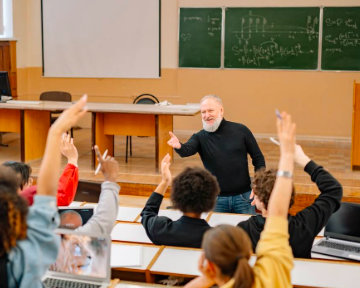As the world continues to evolve, the importance of strong social skills in student success has never been more evident.
In 2025, educators and employers alike recognize that social and emotional competencies are just as vital as academic achievement.
High schools across the country are emphasizing these skills in their programs to ensure that students are prepared for a wide range of challenges and opportunities.
One of the most critical social skills students need in 2025 is effective communication.
This includes the ability to express ideas clearly, listen actively, and adapt tone and style depending on the context. Whether participating in group projects, speaking in class discussions, or collaborating online, strong communication lays the foundation for productive relationships. Teamwork is another essential skill. Students are frequently required to work in diverse groups, both in-person and virtually. Learning how to contribute respectfully, delegate responsibilities, resolve conflicts, and celebrate group success fosters cooperation and community. Schools support teamwork through collaborative assignments, extracurricular clubs, and service learning activities. Empathy and emotional intelligence are increasingly recognized as core components of student success. Understanding others’ perspectives, managing one’s own emotions, and responding compassionately in social situations build trust and connection. Programs that include peer mentoring, reflective journaling, and role-playing scenarios help students practice and internalize these abilities. Problem-solving and decision-making are also tied closely to social interactions. Students must learn to evaluate situations, consider others’ opinions, and arrive at thoughtful conclusions. These skills are practiced in leadership programs, student councils, and through real-world simulations embedded in classroom instruction. Adaptability and cultural awareness have become particularly important in a globalized and rapidly changing world. Students who are open to diverse viewpoints and capable of adjusting to new environments are more likely to thrive in future academic and professional settings. High schools foster these traits through international exchange programs, inclusive curriculum materials, and dialogues on current social issues. Conflict resolution, negotiation, and assertiveness training are now key aspects of many high school social development programs. Learning to advocate for oneself while respecting others creates healthier peer dynamics and improves student confidence. Schools may use structured frameworks such as restorative practices to guide these conversations. Digital etiquette is another vital area. In a world where much interaction happens through screens, students must learn to communicate respectfully and responsibly online. High schools are teaching appropriate online behavior, digital collaboration skills, and awareness of cyberbullying and digital footprint management. Ultimately, social skills are not just about fitting in—they are about standing out as thoughtful, capable, and emotionally intelligent individuals. By prioritizing social development alongside academics, schools equip students with the tools they need to succeed in classrooms, careers, and communities in 2025 and beyond.






